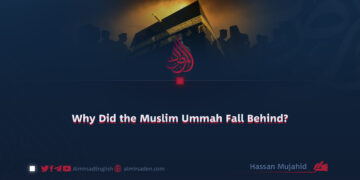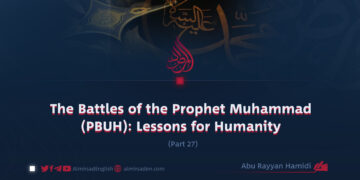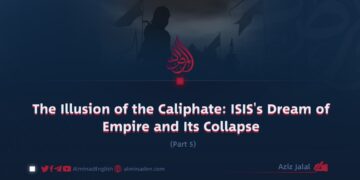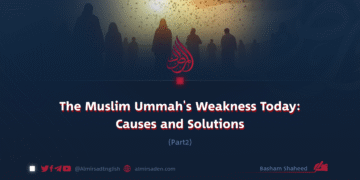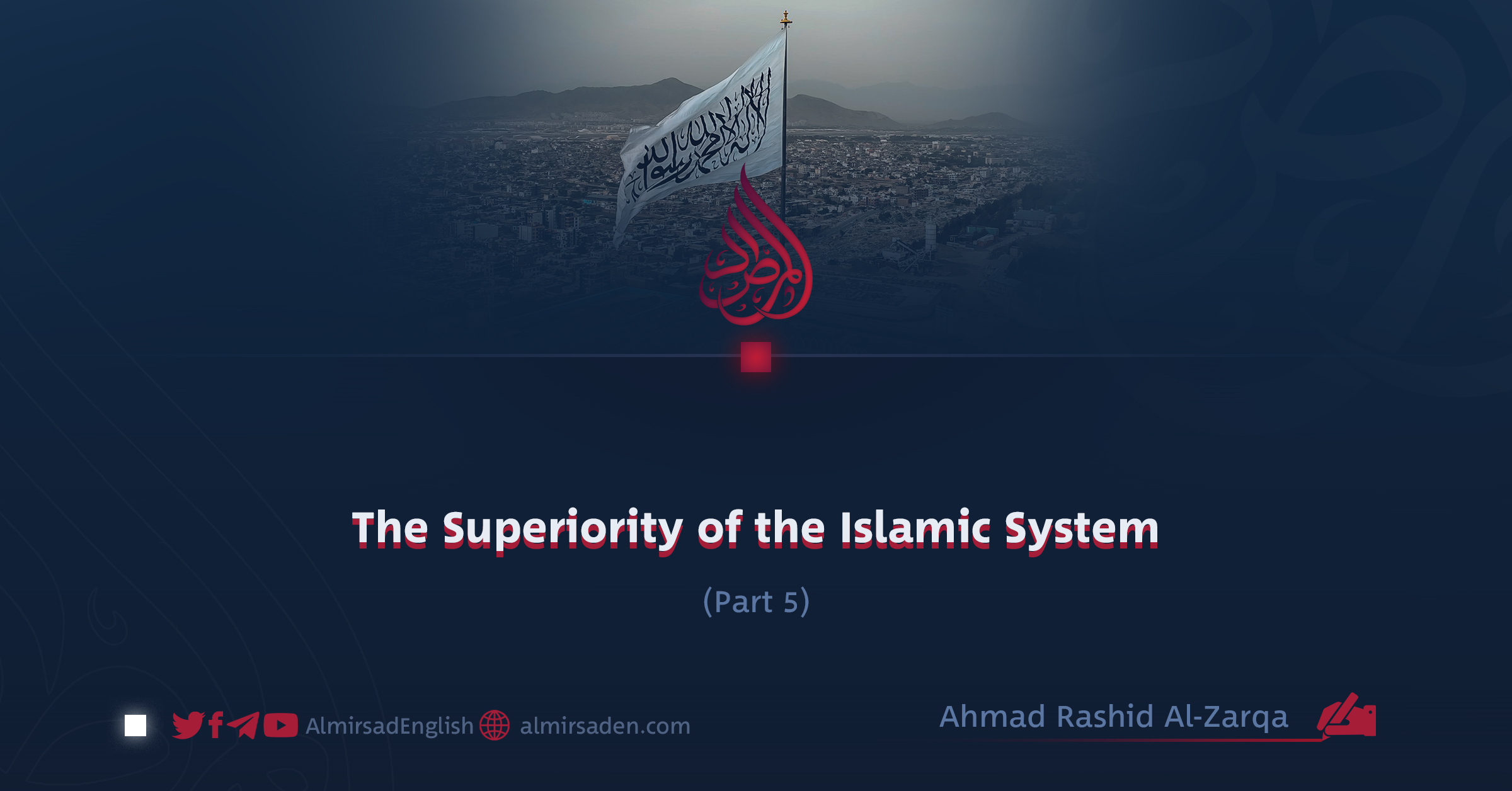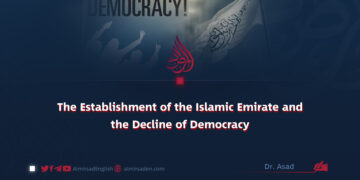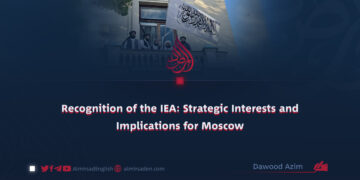Part 5
Ahmad Rashid Al-Zarqa
The Islamic System as a Creed-Based Order
Islam is a creed-based and spiritual system that governs the hearts and consciences of human beings. This is the defining feature of the Islamic order. Even if a Muslim outwardly possesses the means to commit a crime and feels no fear of punishment from a judge or ruler, faith and belief restrain him from wrongdoing.
In contrast, man-made systems, which are founded on human intellect and desires, can enforce laws only through external means such as material force, imprisonment, penalties, and policing. Once this external control disappears, most people transgress the law. Islam, however, seeks a commitment of faith for the implementation of its laws, not coercion or compulsion.
This reality was vividly demonstrated when alcohol, which had been a common and even prestigious practice among the Arabs before Islam, was prohibited. Upon the revelation of the verse:
“O you who have believed, indeed, intoxicants, gambling, [sacrificing on] stone alters [to other than Allah], and divining arrows are but defilement from the work of Satan, so avoid it that you may be successful.” (Qur’an 5:90)
The Companions of the Prophet (PBUH) immediately poured out their wine, shattered their cups, and destroyed their taverns. No punishments were imposed, no penalties were enforced, and no security forces were dispatched. The transformation occurred solely through the strength of faith, not the pressure of force.
The Prophet Muhammad (PBUH) said:
“None of you truly believes until his desires are in accordance with what I have brought.” (Sharh al-Sunnah by Imam al-Baghawī)
Thus, the Islamic system is one that governs the human heart. Faith serves as the foundation for the application of its laws. While man-made systems collapse in the absence of force, the Islamic order endures because it is built upon faith, which provides a stronger and more enduring control over human behavior than law, imprisonment, or punishment.
The Islamic System as a Comprehensive Way of Life
Islam is a complete, comprehensive, and divine system that encompasses every aspect of human life. It addresses matters of belief, ethics, worship, social relations, politics, economics, justice, punishments, and law.
Allah Almighty says:
“We have neglected nothing in the Book.” (Qur’an 6:38)
And in another verse:
“And We have sent down to you the Book as a clarification for all things.” (Qur’an 16:89)
The Prophet Muhammad (PBUH) similarly said:
“I have left among you that which, if you hold firmly to it, you will never go astray after me: the Book of Allah and my Sunnah.” (al-Muwaṭṭa’ of Imām Mālik)
Islam lays down the essential foundations of faith, including the belief in Allah, His angels, His books, His messengers, the Last Day, and divine decree. As the Prophet (PBUH) explained:
“Faith is to believe in Allah, His angels, His books, His messengers, and the Last Day…” (Ṣaḥīḥ Muslim).
At the same time, Islam emphasizes noble character and moral conduct. It calls its followers to truthfulness, honesty, forgiveness, patience, and humility, while forbidding lying, arrogance, oppression, and backbiting. The Prophet (PBUH) said:
“I was sent to perfect good character.” (al-Muwaṭṭa’ of Imām Mālik)
In essence, Islam is not confined to one dimension of life but is a holistic and divine framework that integrates creed, worship, morality, and human interaction. Guided by divine revelation, it provides solutions for every time, place, and community. It is this comprehensive nature that makes Islam the only divinely ordained system of salvation for humanity.




